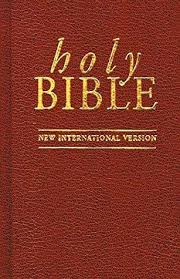The Second Scramble for Africa By
Rudolf Ogoo Okonkwo
View ShopRudolf Ogoo Okonkwo
While you were sleeping, Africa, your Africa, passed through what
will tomorrow be yet another major change in its characteristic.
Laurent Kabila is dead. And with that, comes to an end, the beginning of a new era in Africa. Congo, in more ways than one, is the most wonderful country in Africa. No other country typifies the travails of a continent as Congo does. King Leopold II of Belgium, in 1876 invited explorers to Brussels to discuss Africa. He had his eyes on Congo. He told the explorers that “to open to civilization the only part of the globe which it has not yet penetrated, to pierce the darkness which hangs over entire peoples, is, I dare say, a crusade worthy of this century of progress.” In 1884, at the Berlin West African Conference where European powers shared Africa, in what is now known as the Scramble for Africa, King Leopold II claimed Congo as his personal property.
The landmass of Congo will swallow all the countries of Western Europe- Germany, France, Britain, Italy, Spain, Switzerland, Belgium etc. It is 76 times the size of Belgium. It has the bulk of cobalt of the world. It is the main source of the world’s uranium and 80% of the world’s tantalum are found therein. If managed well, the tropical rain forest of Congo is so fertile it could easily feed the whole of Africa. Yet, aside from Congo music, this country has not made any remarkable impact on the lives of Africans.
In the political arena, Congo has not fared any better either. Its history followed the pattern of most African countries. It had its independence, fought a war, had a coup and became corrupt. Aside from that, it produced Patrice Lumumba. Lumumba represented that generation of Africans who not only fought for independence but also had a vision of where they wanted to take Africa. He however fell out of favor with the West when he pitched tent with the socialist world. He was murdered in one of the first Cold War cross fires in Africa. Lumumba died and so was peace.
The rise and fall of Mobutu Sese Seko mirrored the story of the Cold War politics the West played in Africa. Mobutu’s role as an ally of the West during that era excused him from establishing genuine democracy. It also provided him with the license to be corrupt. Kenya, Malawi, and Cameroon were some of the African countries that enjoyed the same model of development and privileges. At the end of the Cold War, the West abandoned the old policy of appeasing depots in Africa for a new one. The old policy of supporting and maintaining kleptocrats like Zaire’s Mobutu Sese Seko was abandoned for a demand for democracy and transparency. The West, in a politically correct way, succeeded in convincing both African intelligentsia at home and in the Diaspora that African emerging democracies cannot yet run their own affairs. As a result, the West, through the World Bank and IMF prescribed liberalization of the economy. This policy, in theory, entails the devolution of economic control from the government to the private sector. In reality, it has led to the second scramble for Africa.
In 1873, David Livingtone died a heroic death. The missionary- explorer had exposed the horrors of the slave trade and had called on the `civilized’ world to redeem Africa through the three “Cs”- commerce, Christianity and civilization. His call attracted journalist-explorers like Henry Stanley, sailor-explorers like Pierre de Brazza and gold and diamond tycoons like Cecil Rhodes. Soon, a fourth C- conquest, was added. In a span of 20 years, 10 million square miles (two and half times the size of Europe) had been taken over by seven European powers as colonies and protectorates.
The end of the Cold War had brought about old habits of the Western world. During the Cold War era, Western powers suppressed their rivalries as they battled a common enemy- communism. In the post-Cold War era, the US and European powers have embarked on a struggle to assert their economic and political interest in Africa. The shadow behind the present crises in most of Africa came about as a result of this new reality.
In the last four years, the wars in Congo, Angola and Sierra Leone have manifested this new dimension in Western involvement in Africa. The vacuum created by the end of superpower rivalry has led to corrupt governments, arms traffickers and local warlords teaming up with Western governments in search of new adventures in Africa. For the outlawed group, it is diamonds and for the Bretton Woods dollar lords, it is a large piece of Africa state and resources. In Sierra Leone, Britain unilaterally sent in troops in a colonial- style adventure aimed at protecting her economic and political interests. At stake were foreign investments in the West African country and the millions of dollars diamond business. At one point, Britain unsuccessfully used the mercenary outfit, Sandline International to breach UN embargo.
In Congo, a Cayman Island registered mining company, Oryx, entered into agreement with countries participating in the conflict. For being on the side of Laurent Kabila’s Congo and the Zimbabwean government, the company got a $ 1 billion dollars diamond concession in the Kasai region. In the Katanga province, mining giant, Iscor signed a multimillion-dollar deal to rehabilitate copper and cobalt mine. Also, a white Zimbabwean businessman, Billy Rautenbach secured the largest mining concession ever awarded by Congo around the industrial town of Likasi. Industry experts called this deal a “give away of the century”. These companies seek to influence not only the government of the day, but also became entangled in the conflicts around the business. Kabila’s erratic nature of making and breaking deals is suspected to be a potential factor in his assassination.
While the underground scramble for Africa’s mineral wealth is going on, the white collar scramble for Africa’s state own outfits are taking place concurrently. As African nations gagged up by external debt seek debt forgiveness and aid packages, the IMF and World Bank apply pressure on these governments to privatize government companies with Western `strategic partner” at the helm. These strategic partners would provide the locally lacking technical, managerial and financial resources required to turn around these failed government agencies. This requirement has led to an alarming sell out of vital sectors of African economies to foreign interests at bargain basement prices.
In a concerted effort, the US launched an ambitious project of stumping into Africa and taking its own share of the continent. In 1996, Ron Brown, the then Commerce Secretary, told business groups in Ghana that, “from now on, the US is not going to give way on African markets to the old colonial powers.” The Commerce department described Africa as the “last frontier for American businesses.” The rush to Africa is not unconnected to what Callisto Madavo, the World bank’s Vice President for Africa described as Africa’s favorable investment returns rate. According to Madavo, while the worldwide rate of investment returns stood at 16-18%, Africa provided 25-30%.
Not even South Africa, Africa’s only acting imperialist power is spared from the foreign invasion. Telkom, South Africa’s state owned Phone Company recently sold 30% of its stake to Texas-based SBC Communications Inc. and Telekom Malaysia Berhad. The deal was worth $1.26 billion. In a 1998 bid for African satellite project, out of the 12 bidders, four were from the US- Intelsat, Hughes Space and Communications Intl., African Continental Telecommunications Ltd. and Comsat RSI. The rest were European, Asian companies and a South African company. Madeleine Albright described the US policy towards Africa as that of “promoting self-help through capitalism”. In Clinton’s administration’s Africa Growth and Development Bill, African countries were granted duty-free access to US market on the condition that African governments drop restrictions to US imports and private investments. It also required a drastic reduction on government involvement in economic activities and the total dismantling of the state own economic structure. The usually dismissed results of this policy are social services cuts, ecological damage and the destruction of local industrials. They are usually dismissed as short- term pain. The so-called long-term goals have nothing to do with humans as economic indicators soon become the measure of society’s well-being.
In Nigeria, the poor performance of the multinational oil companies in the Niger delta area presents a clear picture of the trend to come. While in East Africa, the mining companies are instigating Congo’s neighbors to plunge into Congo war, in Nigeria, the oil companies are providing equipment and tactical support for Nigerian forces occupying the Niger Delta. These forces and their collaborators use terror to crush people’s resistance as we witnessed in the hanging of Ken Saro Wiwa. The constant flow of oil is more important than human rights, human capital and human development. Nothing would make the West reconsider their search for profit as against the dignity of man. Not even the advent of Sani Abacha and his lack of political ethics could persuade the West to remember the very foundation under which their own society was built on.
To many Africans, these policy initiatives and foreign investments are obviously noble goals geared toward lifting Africa from squalor. It does not matter if all that is happening is the creating of an environment where the West can buy from Africa at cheaper rates and sell to Africa manufactured goods and services as costlier rates. Many would argue that going by the track record of African countries in corrupt practices and conflict precipitation, no stringent measure would be too much for the leaders to bear. In some instances, when the World Bank and IMF had insisted in having their expert in the Finance Ministries and Central banks of African nations as conditions for loans and debt rescheduling, African elite hailed such moves as desirable if not indispensable.
Africa has no strategic response to the storm of globalization. Even though, like El Nino, globalization, while causing rain in those parts of the Western world that are favored by trade, financial flow, exchange of technology and movement of people, in Africa, it is causing severe drought. The World Bank promises for unparalleled opportunity, high living standard, greater growth and an integrated world market are not happening. What is happening is the marginalization and exploitation of Africa in the new world economy. The worldview that has taken hold seems to suggest the end of ideology, the end of nationalism, the end of thought and the end of history. But that is far from the truth.
Currently, more than half of Africa’s 500 million people live on less than $1 dollar a day. African governments are forced to cut back budgetary allocation in Health, Education and services in order to service high external debts. According to Jubilee 200, an international Debt-relief crusader, Africa’s debt stands at $230 billion. It cost the continent $15.2 to service this debt each year. Meanwhile, none of the countries that have adopted and followed the IMF/World bank formula has succeeded in cutting their poverty level in any significant way. This lack of dividend in democracy and economic liberalization leads to political disenchantment, which ultimately leads to failure. In the meantime, globalization marches on with great rapidity. Just like the speed with which Africa was shared in 1880s. African values and systems crumble as the dominant American worldview of MTV, Macintosh and McDonnell’s take control.
It is apparent that Africa is once again returning to the world of Joseph Conrad’s “Heart of Darkness”. The West is once more assuming that “by the simple exercise of our will we can exert a power and good practically unbounded.” Just as it happened in the 1880s, when the idea of bringing civilization to the “Dark Continent” went unchallenged; the current ideal of bringing prosperity and development to the “Hopeless Continent” through globalization is proceeding unchallenged too. Nobody talks about the risk involved or dared to think of an alternative. Anybody who dares is labeled a socialist still lost in the world of command economics. And so like sheep, Africans line up and head to the slaughter. In the Berlin Conference of 1884-1885, Otto von Bismarck did not consult the Africans. But in this second scramble for Africa, the Africans have tactically endorsed Poet Rudyard Kipling view that they are “The White Man’s burden.”
The first outside invasion of Africa occurred during slavery. It took away millions of Africans and caused grave economic, socio-political and psychological effect on Africa. It was followed by the first scramble for Africa that led to colonization. This was the era when economic exploitation, environmental decay and cultural and social dependency took root. A new circle has just begun. It started with the neo-colonialism that followed independence and has accumulated now into a full-blown globalization. These are the days when the globe is seen as one village ran by private enterprises that are profit driven and have no allegiance to nations or peoples except to promote the values of its originators.
While you were sleeping, some white men and women under the umbrella of Jubilee 2000, withstand tear-gas and batons, in Atlanta, in Prague, in Boston, in Zurich, in Seattle, in London, and in anywhere the World bank and IMF meet just to make the point that something about this globalization is enslaving the Third World. While you were sleeping, the second scramble for Africa began. It may take a hundred years for the African to realize what is going on today. That is when the cry against second colonization will ensure.
And as Rudyard Kipling would say:
“Take up the White Man’s burden- Send forth the best ye breed- Go bind your sons to exile To serve your captives’ need; To wait in heavy harness, On fluttered folk and wild- Your new- caught, sullen peoples, Half- devil and half- child.”
Laurent Kabila is dead. And with that, comes to an end, the beginning of a new era in Africa. Congo, in more ways than one, is the most wonderful country in Africa. No other country typifies the travails of a continent as Congo does. King Leopold II of Belgium, in 1876 invited explorers to Brussels to discuss Africa. He had his eyes on Congo. He told the explorers that “to open to civilization the only part of the globe which it has not yet penetrated, to pierce the darkness which hangs over entire peoples, is, I dare say, a crusade worthy of this century of progress.” In 1884, at the Berlin West African Conference where European powers shared Africa, in what is now known as the Scramble for Africa, King Leopold II claimed Congo as his personal property.
The landmass of Congo will swallow all the countries of Western Europe- Germany, France, Britain, Italy, Spain, Switzerland, Belgium etc. It is 76 times the size of Belgium. It has the bulk of cobalt of the world. It is the main source of the world’s uranium and 80% of the world’s tantalum are found therein. If managed well, the tropical rain forest of Congo is so fertile it could easily feed the whole of Africa. Yet, aside from Congo music, this country has not made any remarkable impact on the lives of Africans.
In the political arena, Congo has not fared any better either. Its history followed the pattern of most African countries. It had its independence, fought a war, had a coup and became corrupt. Aside from that, it produced Patrice Lumumba. Lumumba represented that generation of Africans who not only fought for independence but also had a vision of where they wanted to take Africa. He however fell out of favor with the West when he pitched tent with the socialist world. He was murdered in one of the first Cold War cross fires in Africa. Lumumba died and so was peace.
The rise and fall of Mobutu Sese Seko mirrored the story of the Cold War politics the West played in Africa. Mobutu’s role as an ally of the West during that era excused him from establishing genuine democracy. It also provided him with the license to be corrupt. Kenya, Malawi, and Cameroon were some of the African countries that enjoyed the same model of development and privileges. At the end of the Cold War, the West abandoned the old policy of appeasing depots in Africa for a new one. The old policy of supporting and maintaining kleptocrats like Zaire’s Mobutu Sese Seko was abandoned for a demand for democracy and transparency. The West, in a politically correct way, succeeded in convincing both African intelligentsia at home and in the Diaspora that African emerging democracies cannot yet run their own affairs. As a result, the West, through the World Bank and IMF prescribed liberalization of the economy. This policy, in theory, entails the devolution of economic control from the government to the private sector. In reality, it has led to the second scramble for Africa.
In 1873, David Livingtone died a heroic death. The missionary- explorer had exposed the horrors of the slave trade and had called on the `civilized’ world to redeem Africa through the three “Cs”- commerce, Christianity and civilization. His call attracted journalist-explorers like Henry Stanley, sailor-explorers like Pierre de Brazza and gold and diamond tycoons like Cecil Rhodes. Soon, a fourth C- conquest, was added. In a span of 20 years, 10 million square miles (two and half times the size of Europe) had been taken over by seven European powers as colonies and protectorates.
The end of the Cold War had brought about old habits of the Western world. During the Cold War era, Western powers suppressed their rivalries as they battled a common enemy- communism. In the post-Cold War era, the US and European powers have embarked on a struggle to assert their economic and political interest in Africa. The shadow behind the present crises in most of Africa came about as a result of this new reality.
In the last four years, the wars in Congo, Angola and Sierra Leone have manifested this new dimension in Western involvement in Africa. The vacuum created by the end of superpower rivalry has led to corrupt governments, arms traffickers and local warlords teaming up with Western governments in search of new adventures in Africa. For the outlawed group, it is diamonds and for the Bretton Woods dollar lords, it is a large piece of Africa state and resources. In Sierra Leone, Britain unilaterally sent in troops in a colonial- style adventure aimed at protecting her economic and political interests. At stake were foreign investments in the West African country and the millions of dollars diamond business. At one point, Britain unsuccessfully used the mercenary outfit, Sandline International to breach UN embargo.
In Congo, a Cayman Island registered mining company, Oryx, entered into agreement with countries participating in the conflict. For being on the side of Laurent Kabila’s Congo and the Zimbabwean government, the company got a $ 1 billion dollars diamond concession in the Kasai region. In the Katanga province, mining giant, Iscor signed a multimillion-dollar deal to rehabilitate copper and cobalt mine. Also, a white Zimbabwean businessman, Billy Rautenbach secured the largest mining concession ever awarded by Congo around the industrial town of Likasi. Industry experts called this deal a “give away of the century”. These companies seek to influence not only the government of the day, but also became entangled in the conflicts around the business. Kabila’s erratic nature of making and breaking deals is suspected to be a potential factor in his assassination.
While the underground scramble for Africa’s mineral wealth is going on, the white collar scramble for Africa’s state own outfits are taking place concurrently. As African nations gagged up by external debt seek debt forgiveness and aid packages, the IMF and World Bank apply pressure on these governments to privatize government companies with Western `strategic partner” at the helm. These strategic partners would provide the locally lacking technical, managerial and financial resources required to turn around these failed government agencies. This requirement has led to an alarming sell out of vital sectors of African economies to foreign interests at bargain basement prices.
In a concerted effort, the US launched an ambitious project of stumping into Africa and taking its own share of the continent. In 1996, Ron Brown, the then Commerce Secretary, told business groups in Ghana that, “from now on, the US is not going to give way on African markets to the old colonial powers.” The Commerce department described Africa as the “last frontier for American businesses.” The rush to Africa is not unconnected to what Callisto Madavo, the World bank’s Vice President for Africa described as Africa’s favorable investment returns rate. According to Madavo, while the worldwide rate of investment returns stood at 16-18%, Africa provided 25-30%.
Not even South Africa, Africa’s only acting imperialist power is spared from the foreign invasion. Telkom, South Africa’s state owned Phone Company recently sold 30% of its stake to Texas-based SBC Communications Inc. and Telekom Malaysia Berhad. The deal was worth $1.26 billion. In a 1998 bid for African satellite project, out of the 12 bidders, four were from the US- Intelsat, Hughes Space and Communications Intl., African Continental Telecommunications Ltd. and Comsat RSI. The rest were European, Asian companies and a South African company. Madeleine Albright described the US policy towards Africa as that of “promoting self-help through capitalism”. In Clinton’s administration’s Africa Growth and Development Bill, African countries were granted duty-free access to US market on the condition that African governments drop restrictions to US imports and private investments. It also required a drastic reduction on government involvement in economic activities and the total dismantling of the state own economic structure. The usually dismissed results of this policy are social services cuts, ecological damage and the destruction of local industrials. They are usually dismissed as short- term pain. The so-called long-term goals have nothing to do with humans as economic indicators soon become the measure of society’s well-being.
In Nigeria, the poor performance of the multinational oil companies in the Niger delta area presents a clear picture of the trend to come. While in East Africa, the mining companies are instigating Congo’s neighbors to plunge into Congo war, in Nigeria, the oil companies are providing equipment and tactical support for Nigerian forces occupying the Niger Delta. These forces and their collaborators use terror to crush people’s resistance as we witnessed in the hanging of Ken Saro Wiwa. The constant flow of oil is more important than human rights, human capital and human development. Nothing would make the West reconsider their search for profit as against the dignity of man. Not even the advent of Sani Abacha and his lack of political ethics could persuade the West to remember the very foundation under which their own society was built on.
To many Africans, these policy initiatives and foreign investments are obviously noble goals geared toward lifting Africa from squalor. It does not matter if all that is happening is the creating of an environment where the West can buy from Africa at cheaper rates and sell to Africa manufactured goods and services as costlier rates. Many would argue that going by the track record of African countries in corrupt practices and conflict precipitation, no stringent measure would be too much for the leaders to bear. In some instances, when the World Bank and IMF had insisted in having their expert in the Finance Ministries and Central banks of African nations as conditions for loans and debt rescheduling, African elite hailed such moves as desirable if not indispensable.
Africa has no strategic response to the storm of globalization. Even though, like El Nino, globalization, while causing rain in those parts of the Western world that are favored by trade, financial flow, exchange of technology and movement of people, in Africa, it is causing severe drought. The World Bank promises for unparalleled opportunity, high living standard, greater growth and an integrated world market are not happening. What is happening is the marginalization and exploitation of Africa in the new world economy. The worldview that has taken hold seems to suggest the end of ideology, the end of nationalism, the end of thought and the end of history. But that is far from the truth.
Currently, more than half of Africa’s 500 million people live on less than $1 dollar a day. African governments are forced to cut back budgetary allocation in Health, Education and services in order to service high external debts. According to Jubilee 200, an international Debt-relief crusader, Africa’s debt stands at $230 billion. It cost the continent $15.2 to service this debt each year. Meanwhile, none of the countries that have adopted and followed the IMF/World bank formula has succeeded in cutting their poverty level in any significant way. This lack of dividend in democracy and economic liberalization leads to political disenchantment, which ultimately leads to failure. In the meantime, globalization marches on with great rapidity. Just like the speed with which Africa was shared in 1880s. African values and systems crumble as the dominant American worldview of MTV, Macintosh and McDonnell’s take control.
It is apparent that Africa is once again returning to the world of Joseph Conrad’s “Heart of Darkness”. The West is once more assuming that “by the simple exercise of our will we can exert a power and good practically unbounded.” Just as it happened in the 1880s, when the idea of bringing civilization to the “Dark Continent” went unchallenged; the current ideal of bringing prosperity and development to the “Hopeless Continent” through globalization is proceeding unchallenged too. Nobody talks about the risk involved or dared to think of an alternative. Anybody who dares is labeled a socialist still lost in the world of command economics. And so like sheep, Africans line up and head to the slaughter. In the Berlin Conference of 1884-1885, Otto von Bismarck did not consult the Africans. But in this second scramble for Africa, the Africans have tactically endorsed Poet Rudyard Kipling view that they are “The White Man’s burden.”
The first outside invasion of Africa occurred during slavery. It took away millions of Africans and caused grave economic, socio-political and psychological effect on Africa. It was followed by the first scramble for Africa that led to colonization. This was the era when economic exploitation, environmental decay and cultural and social dependency took root. A new circle has just begun. It started with the neo-colonialism that followed independence and has accumulated now into a full-blown globalization. These are the days when the globe is seen as one village ran by private enterprises that are profit driven and have no allegiance to nations or peoples except to promote the values of its originators.
While you were sleeping, some white men and women under the umbrella of Jubilee 2000, withstand tear-gas and batons, in Atlanta, in Prague, in Boston, in Zurich, in Seattle, in London, and in anywhere the World bank and IMF meet just to make the point that something about this globalization is enslaving the Third World. While you were sleeping, the second scramble for Africa began. It may take a hundred years for the African to realize what is going on today. That is when the cry against second colonization will ensure.
And as Rudyard Kipling would say:
“Take up the White Man’s burden- Send forth the best ye breed- Go bind your sons to exile To serve your captives’ need; To wait in heavy harness, On fluttered folk and wild- Your new- caught, sullen peoples, Half- devil and half- child.”





